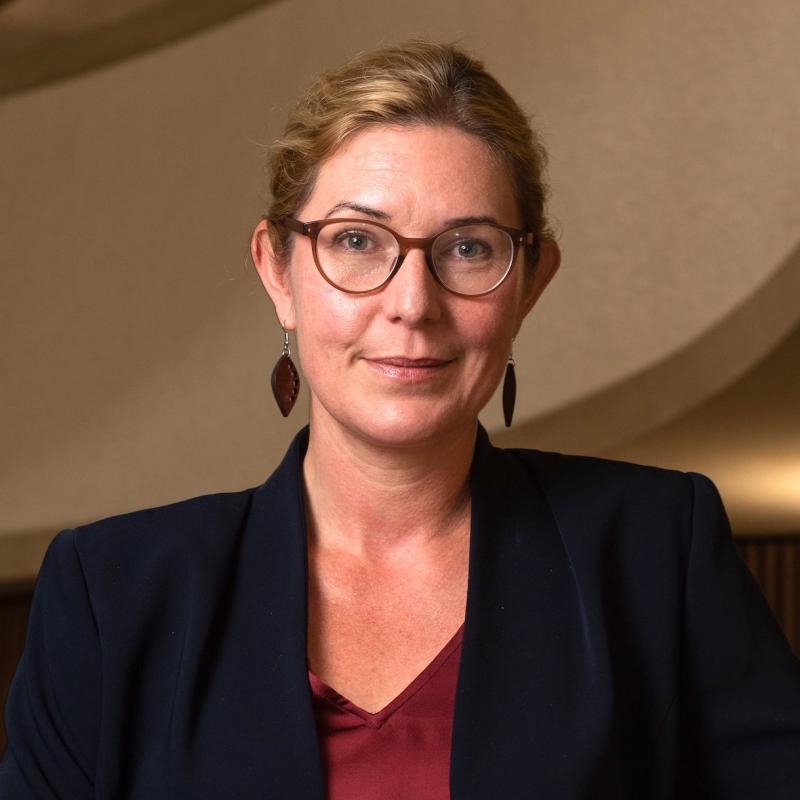Breadcrumb
Anna Petherick is Associate Professor of Public Policy at the Blavatnik School of Government, convening courses on the politics of policymaking and policy challenges.
A commitment to evidence-based research along with working to improve the integrity of organisations have been defining elements of her career so far. But her career began in an altogether different field.
After completing an undergraduate degree in natural sciences, Anna took some time out to pursue science journalism, winning a writing competition at The Economist and becoming their science and technology correspondent, and then moving to the journal Nature to work as a section editor. At 26, she was offered the position of Argentina correspondent – a post she approached “with the way of thinking of a scientist” when it came to evaluating evidence in her political reporting. Though she had planned to return to academia to continue studying natural sciences, this post opened her eyes to a different set of questions about the world she wanted to explore. She therefore decided to pursue postgraduate study in politics at Oxford, focusing on women’s political representation in countries with weakly institutionalised political parties and lots of corruption. She conducted her fieldwork in Brazil.
Anna began teaching on the MPP course during her DPhil studies, and in January 2018 she began working as a postdoctoral researcher working on the Building Integrity project at the School. By July that year she had been offered the post of Departmental Lecturer. Anna was made Associate Professor in June 2022 and now also directs the Lemann Foundation Programme at Oxford, a research partnership that asks what countries can learn from Brazil and vice versa from the point of view of the people and organisations who compose the public sector, as well as those who engage with it.
“In certain ways we’re continuing the Blavatnik School’s work on integrity. The twist that takes our work somewhat away from the Building Integrity project of a few years ago is that I wanted to make our efforts to build integrity more pragmatic, by placing them in the context of existing anti-corruption efforts.”
Anna plans to expand the reach of their research and knowledge exchange activities to other countries across the Global South, focusing on two themes in addition to building integrity: understanding the effects of political polarisation on public-sector service delivery, and building back from COVID-19, particularly in the areas of health and education. She is also continuing her work on gender within all three workstreams.
However, Anna’s work on COVID-19 at the School is not limited to the Lemann Foundation Programme. Back in March 2020, she was teaching on the politics of policymaking module with Thomas Hale while the COVID-19 crisis was beginning to unfold across the world. Conversations in class inevitably shifted to the real-world examples of governments across the world implementing rapid and drastic policy responses to slow the spread of the virus. From here Tom began to make initial plans for the Oxford COVID-19 Government Response Tracker and solicited Anna’s help.
Under the leadership of Anna and Tom, the tracker has grown from an assortment of spreadsheets with basic coding and graphs to a tool that systematically tracks and compares the policy responses of more than 180 governments responding to the COVID-19 pandemic over the past two years. Throughout the pandemic the tracker has provided real-time data to dashboards and models maintained by the UN, WHO, individual governments and businesses. Its growth is thanks to the hundreds of volunteers across the world supporting the project along with the Blavatnik School faculty who worked day and night on the project during the first year of the pandemic.
“In those first days we had no idea how much the tracker would grow – it started as a project to help keep our students engaged by thinking through what governments might need at this critical time and within two weeks the UN Secretary General’s team was in touch to ask for our data.”
Now that many countries have eased COVID-19 restrictions and the world is moving into the recovery phase of the pandemic, the tracker still has an important role to play. The research arm of the project, already with several publications in top journals, has a list of many more questions that the team want to answer.
“People tend to grow used to ongoing crises but, as of mid-2022, the pandemic has not completely gone away, and the impact of pandemic policies will be felt for some time. This year, as governments are faced with the task of building back from COVID-19, we want to continue producing the tracker data to help answer the new and more complex questions that will continue to come up.”
July 2022.

